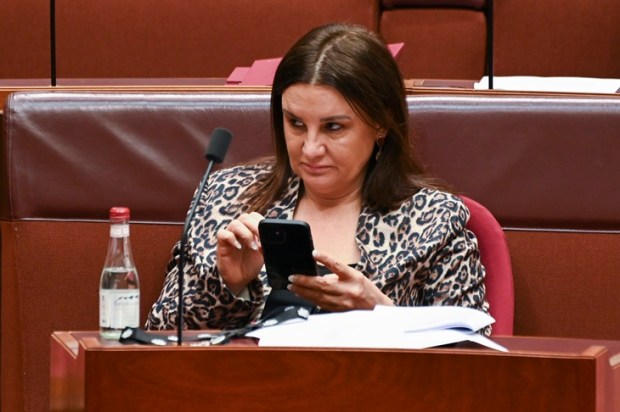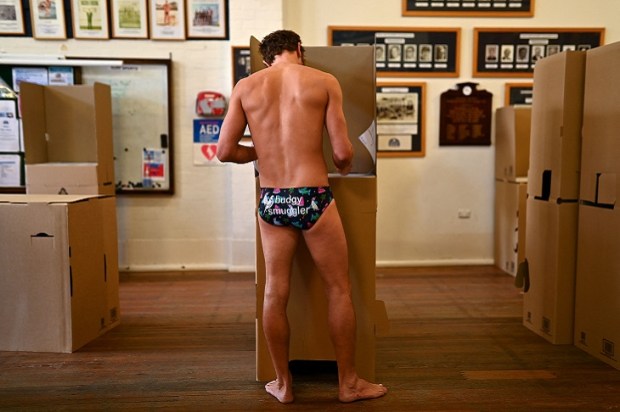Let’s be clear. Supporting free speech does not require you to allow people to trespass or to shut down public highways. It is perfectly in keeping with, say, US 1st Amendment principles to be a strong supporter of free speech principles (full disclosure, as I am) and yet to place some limits on it. Some would be substantive limits. Most all of us would block speech that incites violence or that deals in children’s pornography. But there can be procedural limits too. For instance, it is bog standard even for the strongest of free-speechers to place a few limits on where speech can take place. Hence, it is wholly in keeping with being a strong supporter of free speech to take the position that ‘you can say what you want, but not on my front lawn with a loudspeaker’. Provided other laws are not just indirect means to limit speech one dislikes and there is nothing whatsoever wrong with upholding those other laws.
And that takes us to the university campus sit-ins or encampments mostly proclaiming their support for the Gaza Palestinians. What starts in the US eventually reaches our shores, somewhat enervated and worn out. So it is with these university encampments. Be clear though. The protesters are trespassing. Nothing about free speech hands a free pass to anyone – students or non-students – to takeover university buildings or to set up encampments on university lands. Asking or forcing them to move on, under pain of suspension, expulsion, or criminal prosecution, is not a direct attack on free speech any more than calling the police to remove the guy with the loudspeaker outside your front window is. University top officials decide whether they want to move them on. Or not. Sure, they have myriad other factors and values to consider but just because the protest is important to some sub-group of the university community is not any sort of knock-out consideration. In the US some universities (mostly in the south-east) have simply warned the protesting students to move on and then, after a day or two, sent in the police and suspended the students. Other universities (most obviously elite Ivy League ones) have left the students in place for a long, long time.
The next point to make concerns the issue of what the Americans call ‘content neutrality’. Trespass laws apply to everyone. There is no weighting towards or against one set of views over another. But when they’re invoked can be non-neutral. Given that the top university administrators have to make a call on whether and/or when to remove the trespassing protesters a background question is whether you think these administrators are (or would be) neutral in how they would likely approach protesting and encamping students. Would they make the same calls as regards pro-Palestinian and pro-Hamas students as they would if campus quadrangles were taken over by protesters against transgender encroachments on women-only spaces or women’s sports? Or if protesters for One Nation or in support of Donald Trump were doing this? Personally, I have massive doubts. Last year’s Voice referendum starkly revealed what many of us suspected – university administrators are as skewed to the political left as the academics are, maybe more so. (The data on this is plentiful or just read Jonathan Haidt, a left-leaning US academic who details and laments the collapse of viewpoint diversity on campuses.) Two-thirds of our publicly-funded universities came out officially for ‘Yes’ in a party political referendum. The other third was officially neutral but as anyone could tell you they ran information sessions and sent out emails that made plain the hierarchy was strongly in the ‘Yes’ camp too. If you’ll openly take sides on an issue that splits the two main political parties, and you’re a taxpayer-funded institution, there are some strong grounds for doubting just how content-neutral our top university officials would be in deciding when to clear out protesting trespassers.
Here are two observations to finish. Firstly, and cards fully on the table, I am strongly in the Israeli camp on this matter. As the only democracy in the region, and the only one that affords equal rights to all minority groups (including Muslim Arab citizens who do not seem to be rushing to leave for Syria or Jordan or Palestine) it is responding to a brutal, ruthless attack. When the Nazis attacked us and we finally got the upper hand we fought back to win. In fact, we bombed Dresden into rubble. Starting wars has consequences. I also doubt there is a real demand for two states amongst Hamas and many Palestinians because the deal Bill Clinton got them was better than any that will ever be on the table. And it was flat-out rejected. But that’s just my substantive take on the matter. In terms of free speech I am actually glad these protests got off the ground and the encampments established. Why? Because as John Stuart Mill long ago noted, it is always better to know where you stand and what others think. The comfort of wilful blindness is short-term only and a mistake. All Australians can now see what many of the students going through our education system believe and think. And what some faculty and outsiders believe too. Knowing the state of our education system is a good thing even if it’s not good news.
The second observation is this. Australia is basically unique in the Anglosphere in having most university students live at home and commute in and out of uni. In my native Canada, in the US, in Britain, and even in New Zealand, most students leave home when they go to university. I’ve always thought that’s a downside to Australian university life. Residence universities are more fun and they teach you about life as an independent person. But we can all now see there’s an unintended benefit to the Aussie set-up. Commuting students who only come on to campus once or twice a week, usually for short periods, are hard to radicalise. On the whole, they’re apathetic about campus life. Turns out, unexpectedly, that can be an unintended plus when you look at US campuses at the moment.

























